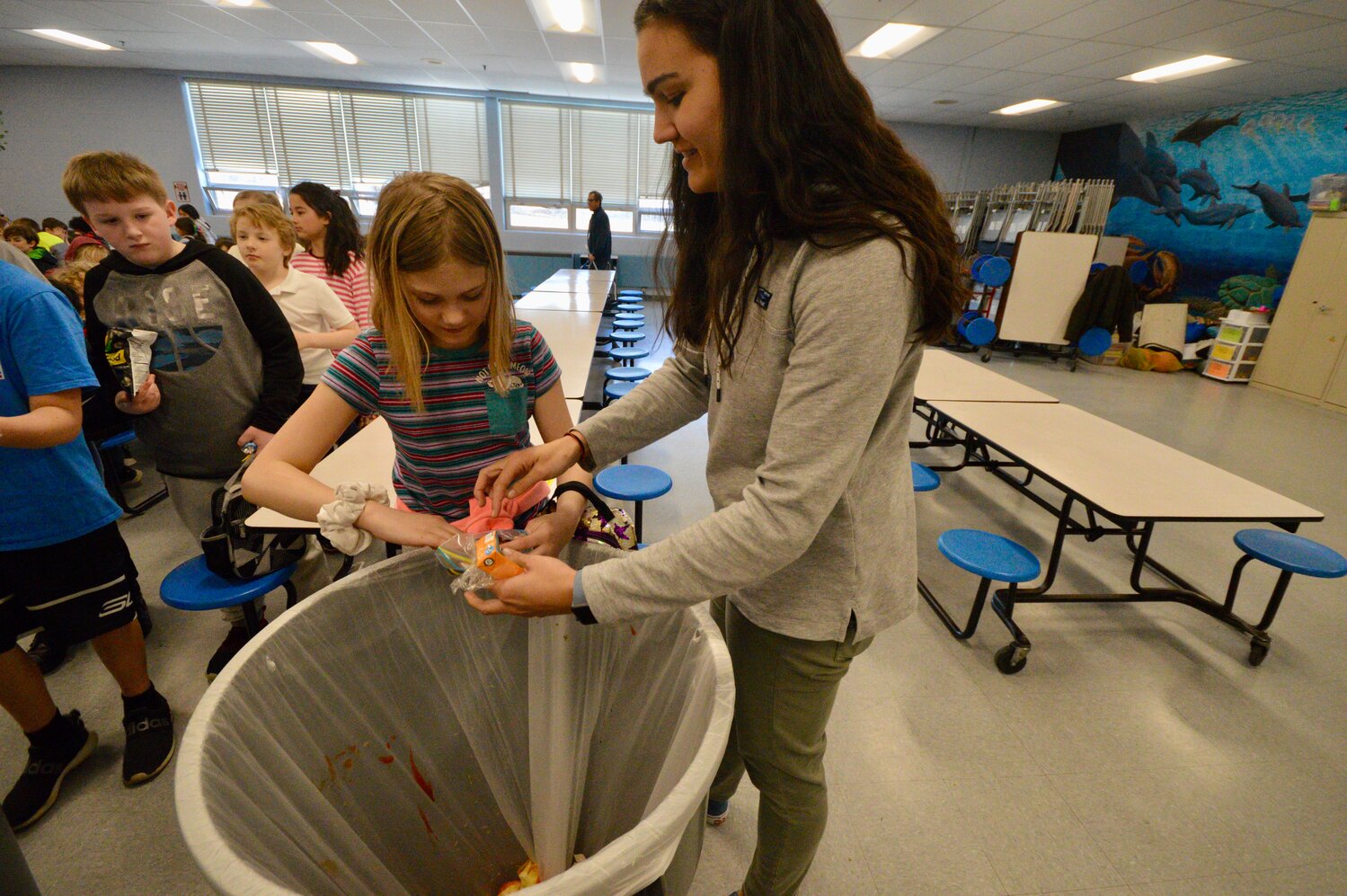Portsmouth schools keeping it out of the landfill
School district is first in R.I. to implement lunchroom composting program for students, food service provider
PORTSMOUTH — Portsmouth public school students have been doing their best to keep their recyclables and food scraps out of the state landfill, but they’re taking it up a notch.
This item is available in full to subscribers.
Please log in to continue |
Register to post eventsIf you'd like to post an event to our calendar, you can create a free account by clicking here. Note that free accounts do not have access to our subscriber-only content. |
Day pass subscribers
Are you a day pass subscriber who needs to log in? Click here to continue.
Portsmouth schools keeping it out of the landfill
School district is first in R.I. to implement lunchroom composting program for students, food service provider
PORTSMOUTH — Portsmouth public school students have been doing their best to keep their recyclables and food scraps out of the state landfill, but they’re taking it up a notch.
The district is now the first in Rhode Island to implement a standard lunchroom composting program, both for its students and Chartwells, the school department’s food service provider. The district’s long-term commitment to the lunchroom composting stems from the “School Recycling and Refuse Disposal” legislation that mandates schools across the state compost any food scraps. The state's only central landfill, where 100,000 tons of compostable food waste ends up each year from residents, schools and commercial businesses, is scheduled to close by 2040.
Composting in the schools isn’t exactly new here. Melville and Hathaway tinkered with a lunchroom composting program under the guidance of the environmental group Clean Ocean Access (COA) more than four years ago before it was interrupted by the COVID-19 pandemic. At the time, food scraps collected at lunchtime were transported to Rhode Island Nurseries in Middletown and broken down using a commercial-grade, high-heat method. The initiative started up again the following year, adding the middle school to the program.
So what’s different this time?
COA dissolved early this year after 10 years in operation, but its former program director, Portsmouth High graduate Eva Touhey, is now with WasteNaut Consulting, the company implementing the new composting program in partnership with the school district. Touhey considers the former composting efforts a pilot program to test its feasibility and impact.
The goal now is to create a uniform composting program that will be familiar to all students — grades K through 12 — as they pass through the school system. Hopefully, a district-wide compositing program will inspire other districts to do the same and expand their environmental impact and increase community awareness of the benefits of composting food scraps, she said.
“A lot has changed, but we’re still moving forward in the right direction,” Touhey told the School Committee at its June 25 meeting.
Numbers tell the story
Touhey said accountability is important “to make sure we have the environmental impact we set forth,” so the program keeps careful track of the amount of food scraps that are being diverted from the landfill.
“We started compositing officially in December (2023) in the third and fourth grades at both Hathaway and Melville. Just by doing that, we were able to divert 18,000 pounds of food scraps,” she said, noting the data came from Black Earth Compost, the program’s commercial composting hauler.
Chartwells is also on board. The district’s food service provider is composting “back of house,” meaning it’s collecting food scraps produced in all four school kitchens for composting. Chartwells is also exploring the possibility of forgoing single-use plastic items in favor of compostable items such as “paper boats” or eco-friendly utensils, she said.
“Hopefully, the only landfill waste we will be creating next year would be single-use packaging” such as plastic wrappers, chip bags or soiled containers, Touhey said.
The numbers of food scraps being diverted will only increase as more students in other grades are trained, she said. For most students, separating food scraps and recyclables has become second nature, according to Touhey.
“Third- and fourth-graders are pretty self-sufficient. I was in the lunchroom a week or two straight in both Melville and Hathaway, and went I went back in April after we got everything situated and started again. They did not need any help; they were doing it on their own,” she said, adding that lunch aides are trained as well. “I’m really conformable that the rest of the elementary school kids will be able to jump right into it in September.”
Each elementary school has a Green Team — one led by Lauren Freeman at Hathaway, the other by Jason Spitalnik at Melville. The latter is expected to lead a green team at the middle school next year as well.
The goal in September is to launch uniform composting programs at both the middle school and high school, and to relaunch at the elementary schools with presentations to students in kindergarten through grade 3.
Results of the program will also be shared with the Town Council, so officials can determine how else the town can support composting efforts for residents.
For more information about the program, contact info@wastenautri.com.







